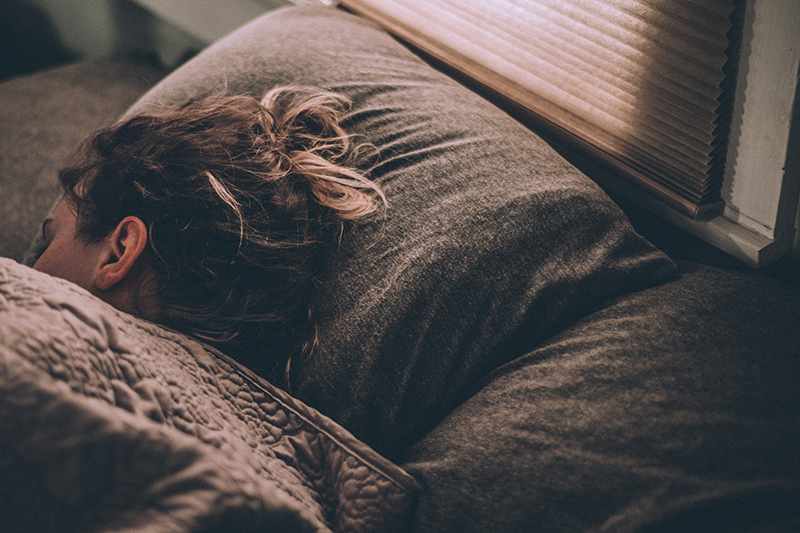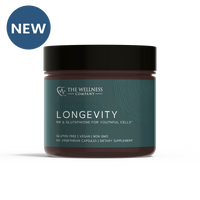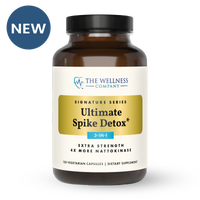5 Keys to Engineering the Best Sleep of Your Life

Whether you’re a CEO pursuing enhanced mental performance [1], a teen struggling with anxiety [2], an athlete aiming to prevent injuries [3] or a senior attempting to stave off cognitive decline [4], a mounting body of evidence shows that sleep is one of the most powerful tools at your disposal.
Most of us are aware of the importance of a good night’s sleep. But what can you do – tonight – to engineer the best sleep of your life?
#1: Be Consistent
Our sleep-wake cycle is regulated by a brain center called the Suprachiasmatic Nucleus (SCN) [5]. This master-clock uses signals such as light, temperature, food, and movement to tell our body when it's day and when it's night. In the morning, it triggers the release of hormones like cortisol, which make us alert. At night, it triggers the release of hormones like melatonin, which make us drowsy.
The SCN thrives on routine. When it knows what to expect, it orchestrates hormone release with optimum efficiency. To get your SCN firing on all cylinders, commit to waking up at the same time every day.
#2: Stay Cool
To get to sleep, your core body temperature must drop by a couple of degrees [6]. This is why it’s always much harder to fall asleep in the summer than the winter. If you live in a hot area, do whatever you need to do to stay cool. Temperature is a critical precondition for sleep initiation.
#3: Minimize Light Exposure Before Bed
Our modern world is flooded with artificial light. If you’ve ever gone camping, you’ll likely relate to being bleary-eyed at 9 pm. Why? No artificial light.
As mentioned, melatonin is the key hormone that initiates sleep. Bright lights powerfully suppress its release. A few hours before bed, dim the lights in the house. If you can manage it, ditch the smartphone at least an hour before bed.
#4: Maximize Light Exposure During the Day
While it's critical to avoid light before bed, it's just as important to expose yourself to light during the day. Seeing the sunrise is especially helpful; it cues your brain's master-clock to start a countdown for bedtime.
If you can, have your morning coffee on the porch, or get out for a quick walk around the block first thing.
#5: Limit Caffeine
The primary molecule that makes us sleepy is called adenosine. It builds up in our brain throughout the day, and by night, it reaches a high enough concentration to impart a powerful sleep pressure which makes us drowsy [7].
Caffeine enhances alertness by crowding out adenosine receptors [8]. When you have your morning cup of joe, you feel awake because adenosine – which causes drowsiness – can’t exert its effects.
Unfortunately, caffeine lingers in your brain for several hours, so if – feeling sluggish and in need of a pick-me-up – you reach for a 4 p.m. latte, it’s likely that by nighttime, adenosine still won’t be positioned to exert its effects optimally.
To optimize your sleep, stop caffeine intake at 10 a.m.
Featured Natural Supplement for Restful Sleep
Video: A brilliant Ted Talk by Sleep Scientist Dr. Matthew Walker highlighting the importance of prioritizing sleep for general wellness.
References
[1] Diekelmann, S. (2014). Sleep for cognitive enhancement. Frontiers in systems neuroscience, 8, 46.
[2] Yoo, S. S., Gujar, N., Hu, P., Jolesz, F. A., & Walker, M. P. (2007). The human emotional brain without sleep—a prefrontal amygdala disconnect. Current biology, 17(20), R877-R878.
[3] Milewski, M. D., Skaggs, D. L., Bishop, G. A., Pace, J. L., Ibrahim, D. A., Wren, T. A., & Barzdukas, A. (2014). Chronic lack of sleep is associated with increased sports injuries in adolescent athletes. Journal of Pediatric Orthopaedics, 34(2), 129-133.
[4] Xie, L., Kang, H., Xu, Q., Chen, M. J., Liao, Y., Thiyagarajan, M., ... & Nedergaard, M. (2013). Sleep drives metabolite clearance from the adult brain. science, 342(6156), 373-377.
[5] Hastings, M. H., Maywood, E. S., & Brancaccio, M. (2018). Generation of circadian rhythms in the suprachiasmatic nucleus. Nature Reviews Neuroscience, 19(8), 453-469.
[6] Murphy, P. J., & Campbell, S. S. (1997). Nighttime drop in body temperature: a physiological trigger for sleep onset?. Sleep, 20(7), 505-511.
[7] Huang, Z. L., Urade, Y., & Hayaishi, O. (2011). The role of adenosine in the regulation of sleep. Current topics in medicinal chemistry, 11(8), 1047-1057.
[8] Ribeiro, J. A., & Sebastiao, A. M. (2010). Caffeine and adenosine. Journal of Alzheimer's Disease, 20(s1), S3-S15.














